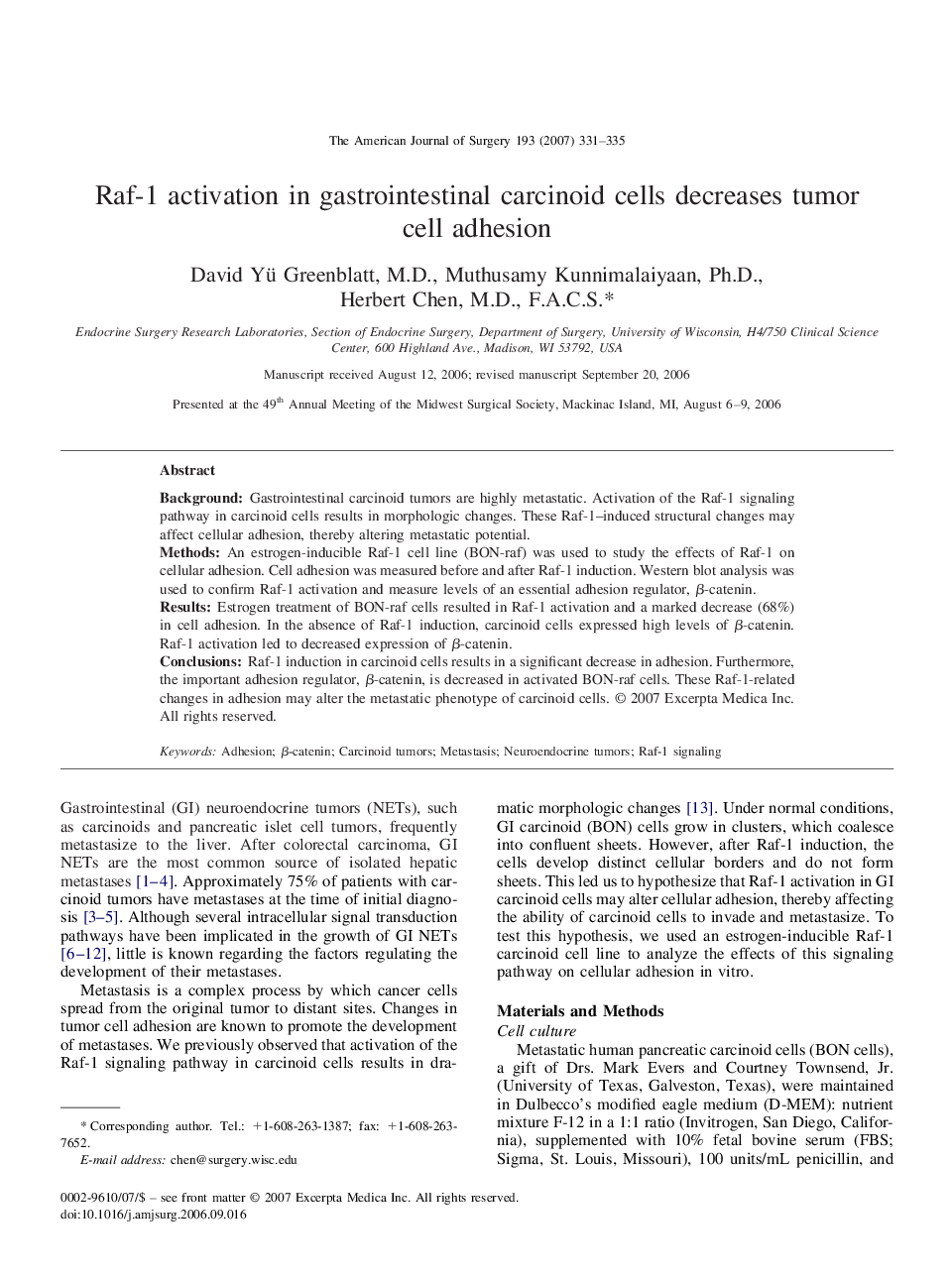| Article ID | Journal | Published Year | Pages | File Type |
|---|---|---|---|---|
| 4281670 | The American Journal of Surgery | 2007 | 5 Pages |
BackgroundGastrointestinal carcinoid tumors are highly metastatic. Activation of the Raf-1 signaling pathway in carcinoid cells results in morphologic changes. These Raf-1–induced structural changes may affect cellular adhesion, thereby altering metastatic potential.MethodsAn estrogen-inducible Raf-1 cell line (BON-raf) was used to study the effects of Raf-1 on cellular adhesion. Cell adhesion was measured before and after Raf-1 induction. Western blot analysis was used to confirm Raf-1 activation and measure levels of an essential adhesion regulator, β-catenin.ResultsEstrogen treatment of BON-raf cells resulted in Raf-1 activation and a marked decrease (68%) in cell adhesion. In the absence of Raf-1 induction, carcinoid cells expressed high levels of β-catenin. Raf-1 activation led to decreased expression of β-catenin.ConclusionsRaf-1 induction in carcinoid cells results in a significant decrease in adhesion. Furthermore, the important adhesion regulator, β-catenin, is decreased in activated BON-raf cells. These Raf-1-related changes in adhesion may alter the metastatic phenotype of carcinoid cells.
